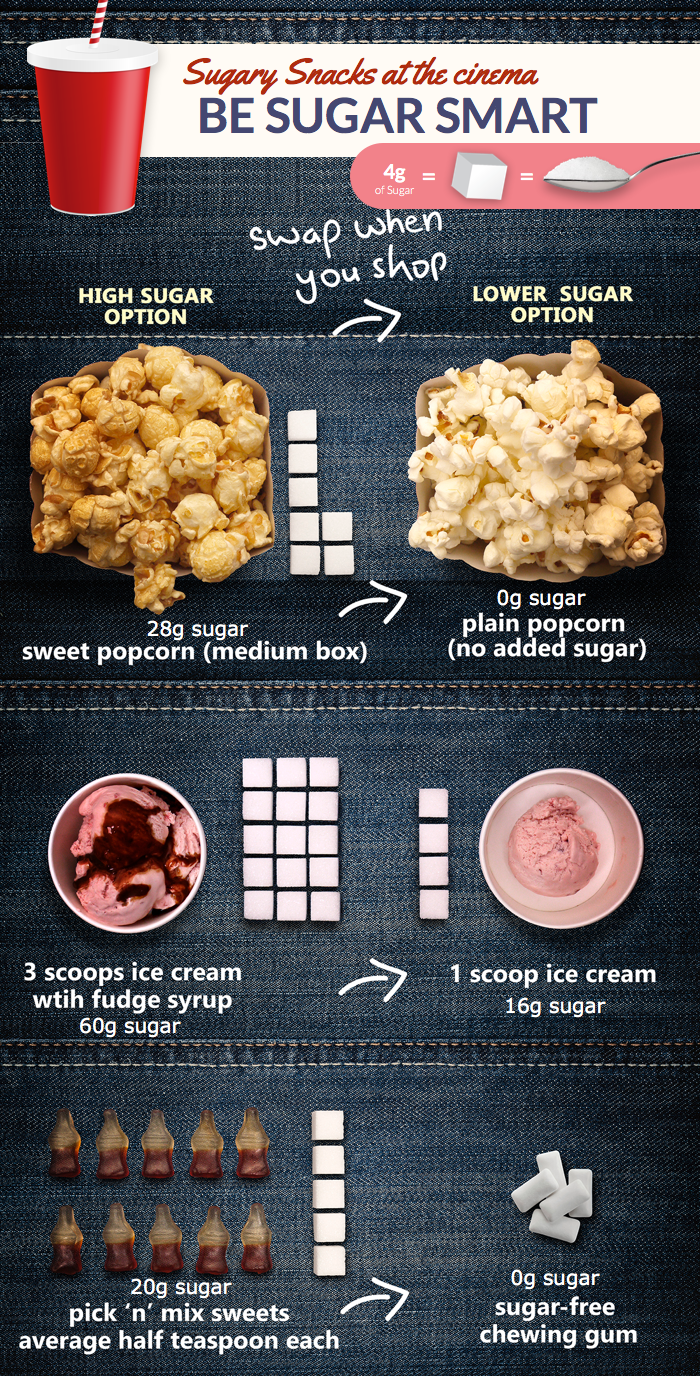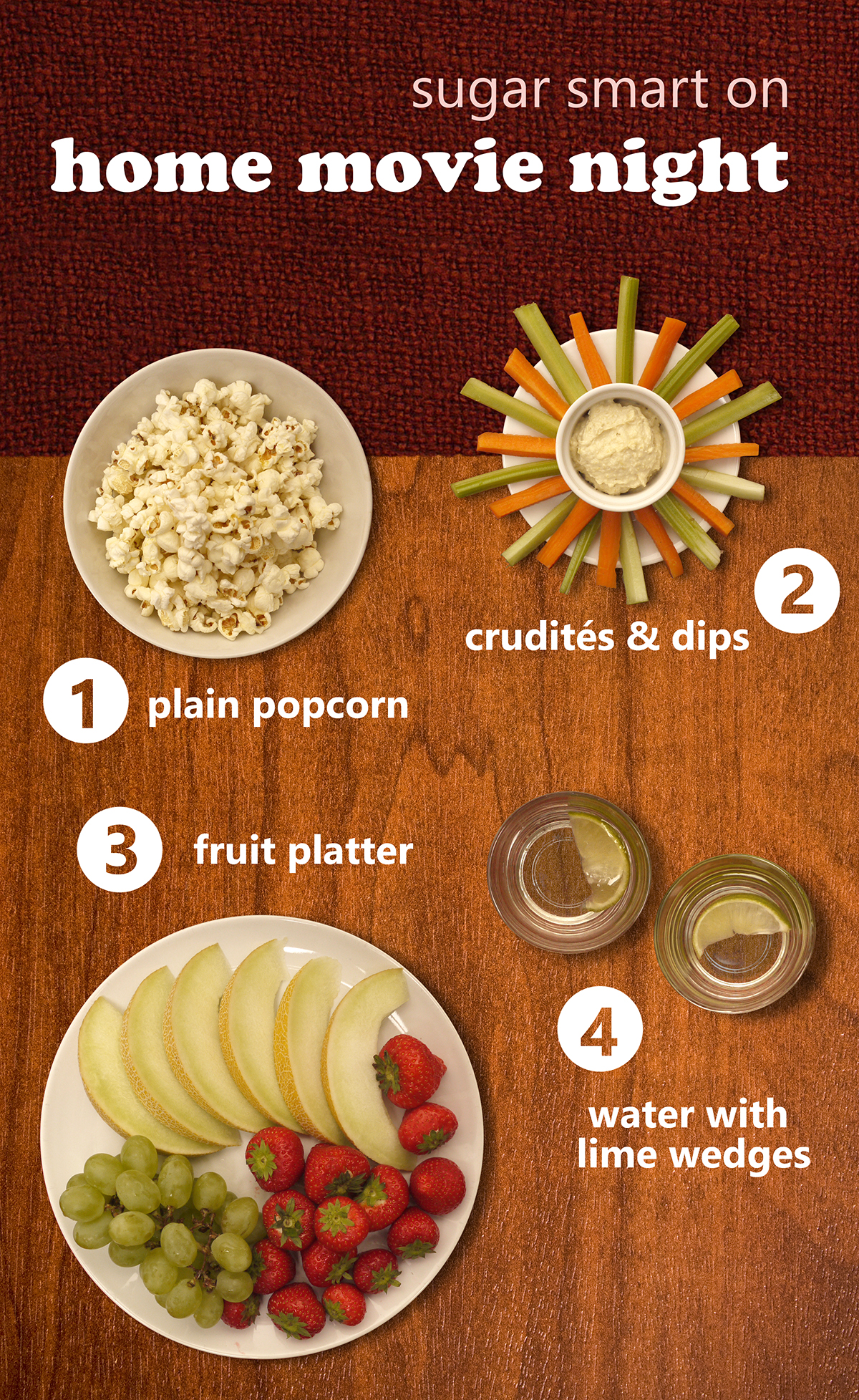Whether it’s a trip to the cinema or enjoying a movie at home, it can be tempting to over-indulge in sugary snacks.
The World Health Organisation recommends you should have no more than 10-14 teaspoons of sugar a day.

Be Sugar Smart at the Cinema
- Having a meal before going to the cinema can help ensure hunger doesn’t steer you towards less healthy
treats to hand - Choose water or a diet drink instead of a standard sugary fizzy drink
- A sharing bag of sweets can have up 27 teaspoons of sugar, so be sure to share or avoid altogether
- Try not to be fooled by ‘value’ or ‘combo’ offers – often the total sugar content is high

Be Sugar Smart at Home
- You control what treats you bring into your home, plan ahead and ensure you have healthy treats
- Make your own popcorn, you can control what you add. Keep it plain for the healthiest option.
- Avoid sugary fizzy drinks – why not go for a diet variety or serve chilled jugs of water with wedges of lemon or lime
- Be creative with vegetable crudités and dips such as tomato salsa and hummus
- Instead of sharing size bags of treats go for fun-size individually wrapped items, and only serve enough to give one item per person
- Create a fruit platter for a sweet treat without added sugars
Being Sugar Smart allows you to make better choices for your overall health. Understanding food labels is the ultimate tool to help you recognise how much free sugar you and your family are consuming. Download our Understanding Food Labels Guide now. Other useful resources include our Supermarket Shopping Guide and ourhealthy eating recipes section. Check out these resources and start to make the small simple steps to becoming Sugar Smart today.
Small changes matter – making a few changes to the way you eat and drink can make a big difference to your health over time.
If you would like to join our mailing list and receive ‘Sugar Smart’ updates click here.
Remember, high intakes of free sugars are associated with type 2 diabetes, dental decay, obesity and increase the risk of Coronary Heart Disease (CHD) and cancers.






